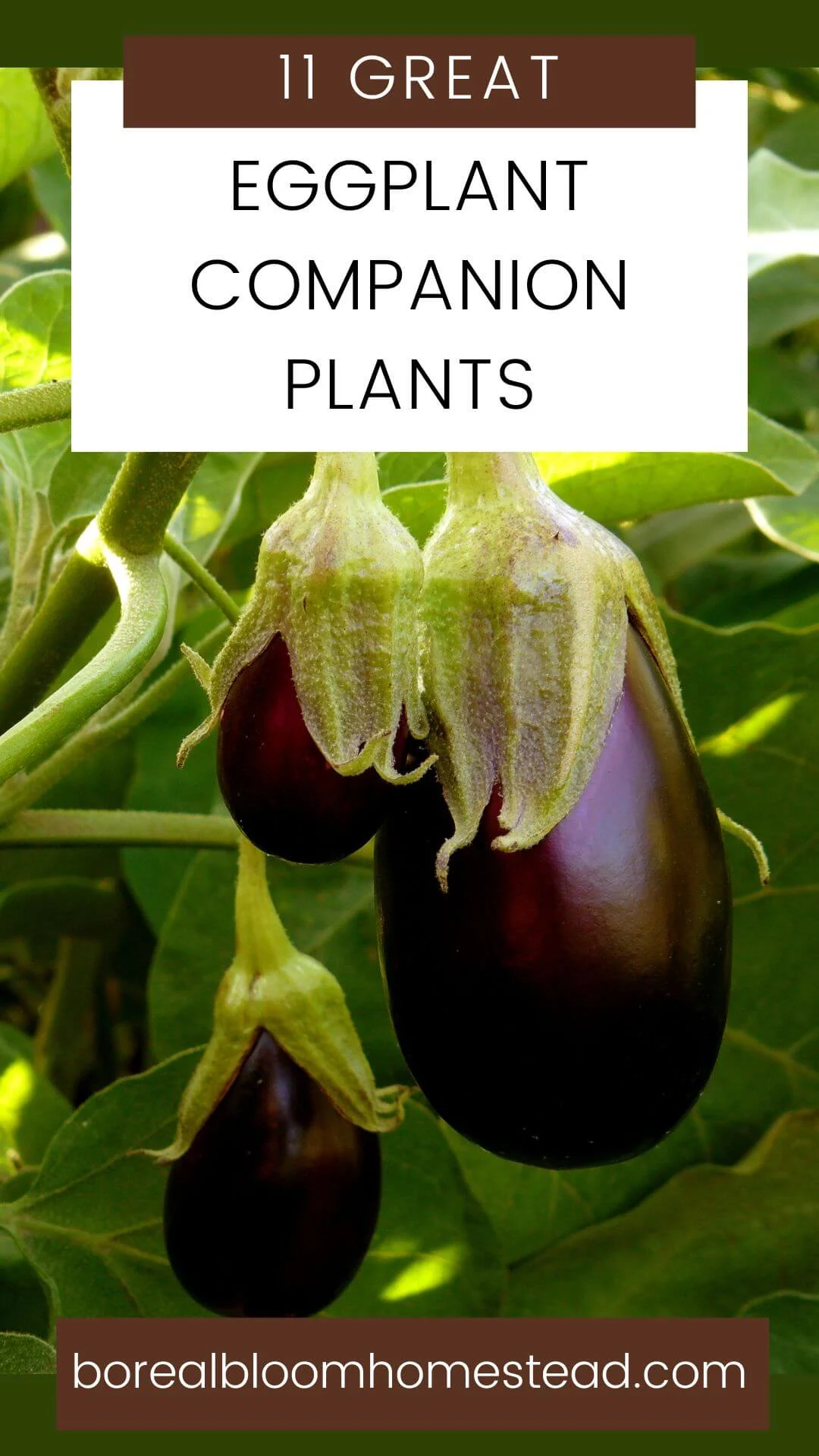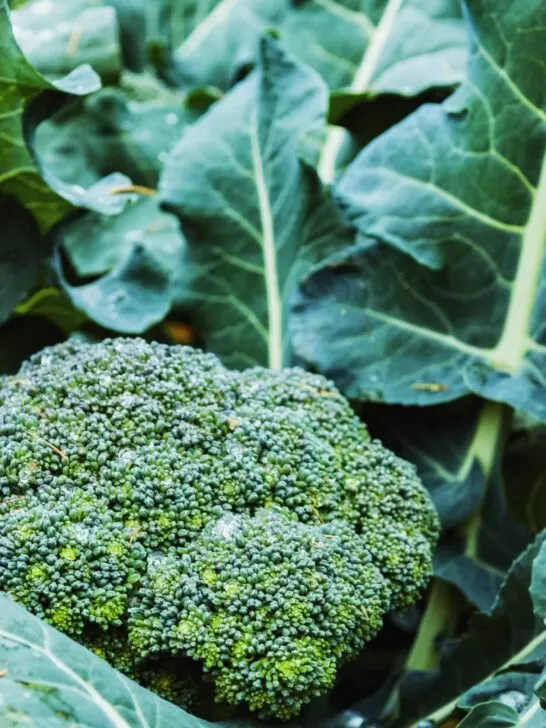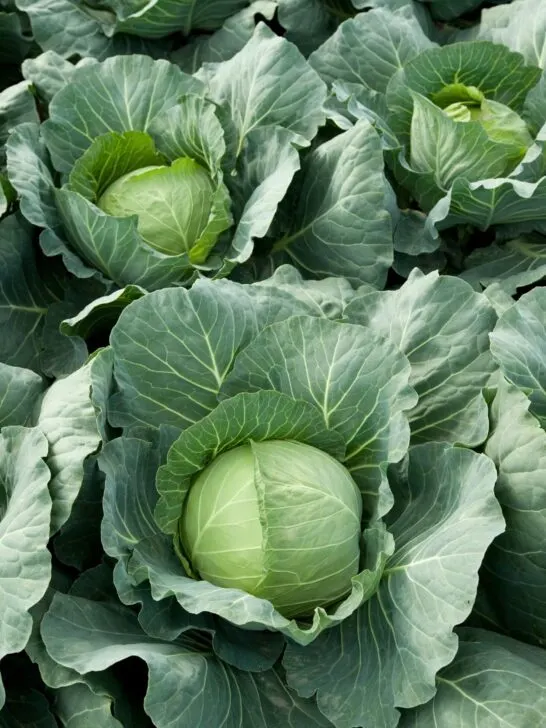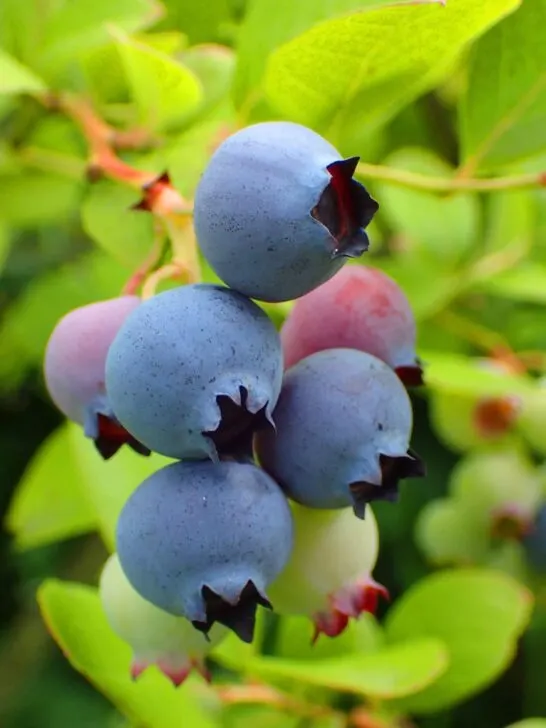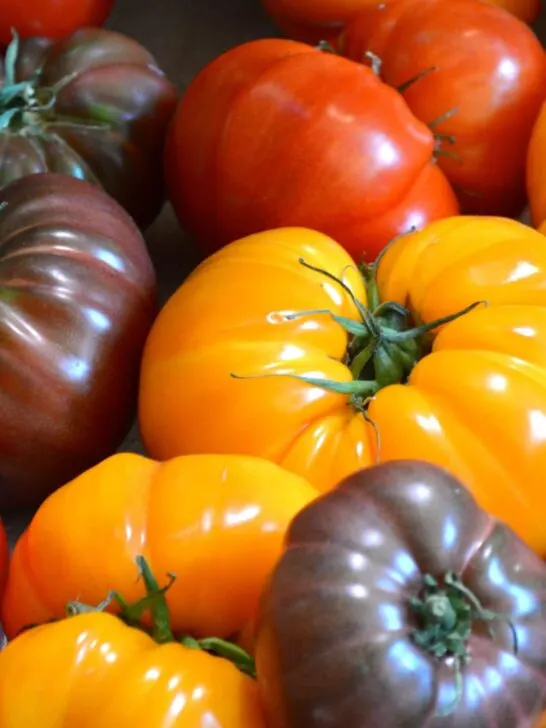Picking proper eggplant companions can improve the health and vitality of your garden. Here's a guide on which work with eggplant and which plants won't work at all!
Eggplant, also known as aubergine, belongs to the Solanaceae family, which includes a variety of vegetables such as potatoes, tomatoes, peppers, and other non-food crops like tobacco, petunias, and even the deadly nightshade plant!
Eggplant is a warm-weather vegetable that produces spongy fruits in a variety of colors, shapes, and sizes. Here in North America, the most common eggplant is the deep purple globe variety. It grows best in well-drained sandy loam or loam soil that is high in organic matter. Eggplants need full sun and warm conditions to thrive, so it's important to plant them after the last chance of frost and when the soil has warmed up.
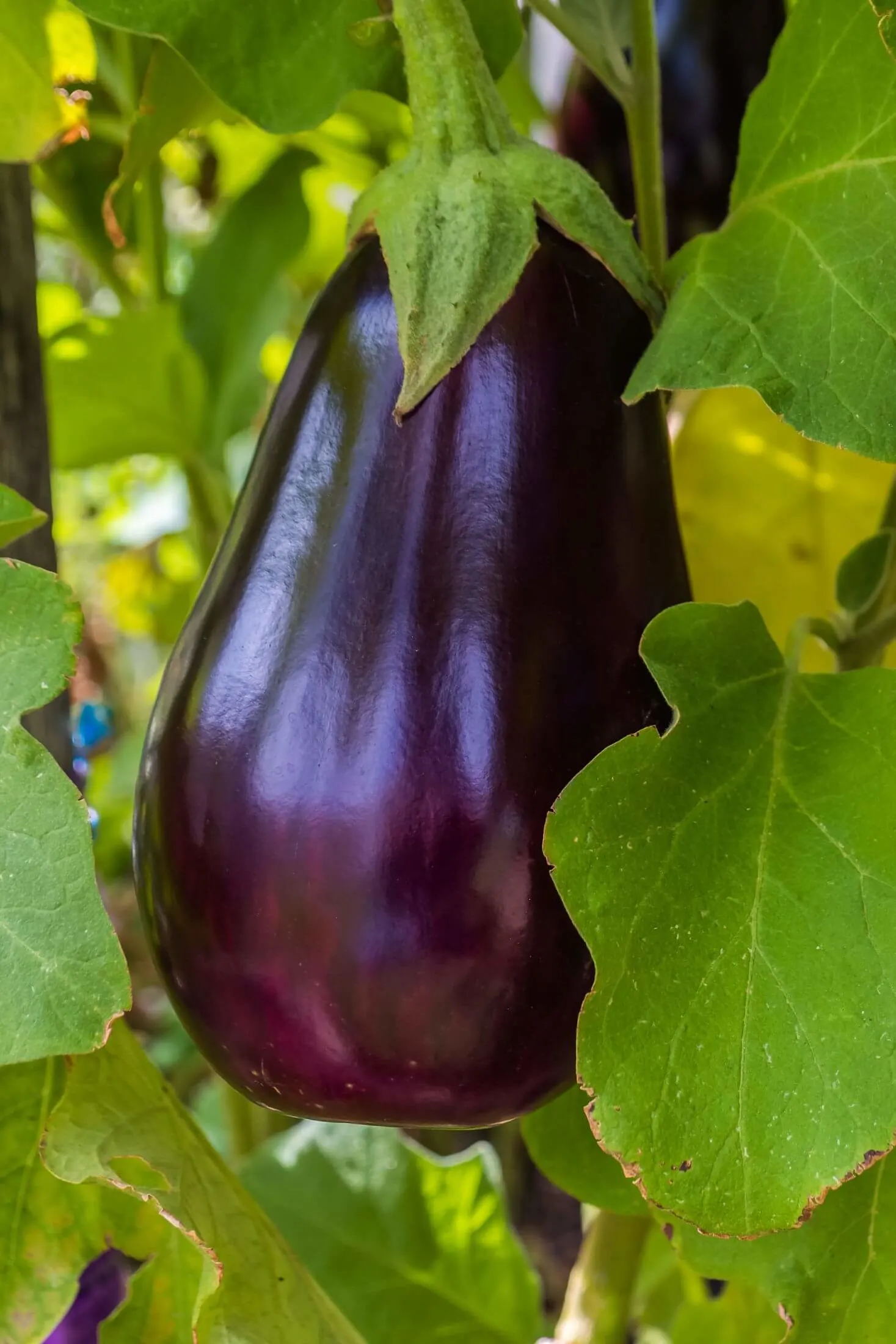
As an Amazon Associate I earn from qualifying purchases.
Jump to:
What Is Companion Planting?
Companion gardening is the practice of planting two or more plants together for the benefit of one or both plants. By planting eggplant with certain plants, you can help increase the growth and vigor of your vegetable garden while reducing the likelihood of pests and diseases on both the aubergine plants and the companion plants.
Benefits Of Companion Planting
There are many reasons why companion planting is beneficial, but some of the benefits specific to eggplant include:
- help to protect your tomato crop from pests and diseases.
- improve growth and vigor, and in some cases, even flavor!
- help to attract beneficial insects, which will then prey on pests.
- provide optimal growing conditions, such as shade or ground cover.
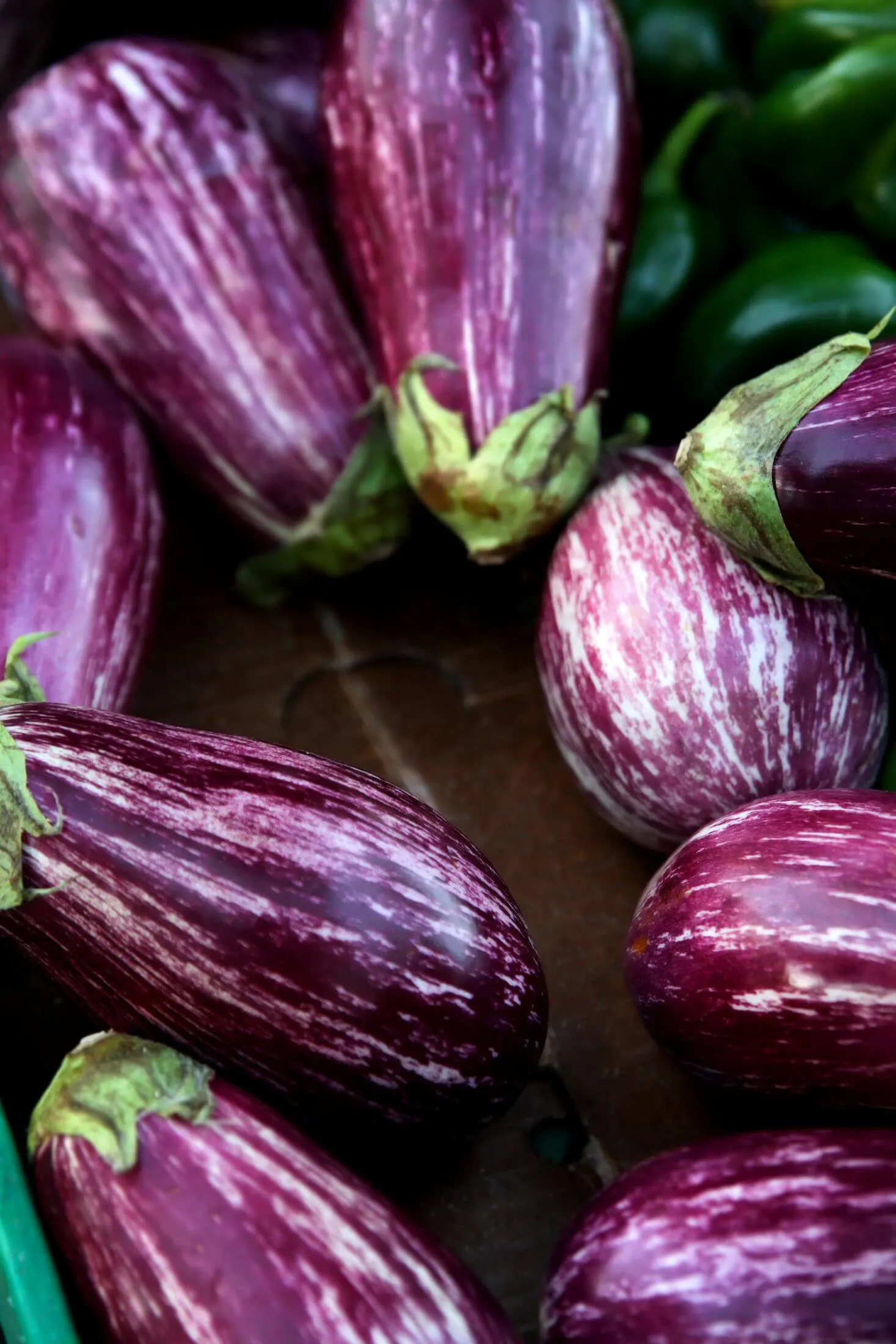
Eggplant Notes:
Eggplants are a member of the nightshade family and as such, are susceptible to many of the same pests and diseases that affect other plants in the Solanaceae family, such as tomatoes, peppers, and potatoes.
Practicing careful crop rotations and avoiding planting eggplants in zones that have previously been used by nightshades can help reduce pest pressure. Our common eggplant insect pests include Colorado potato beetles, flea beetles, aphids, whiteflies, and spider mites.
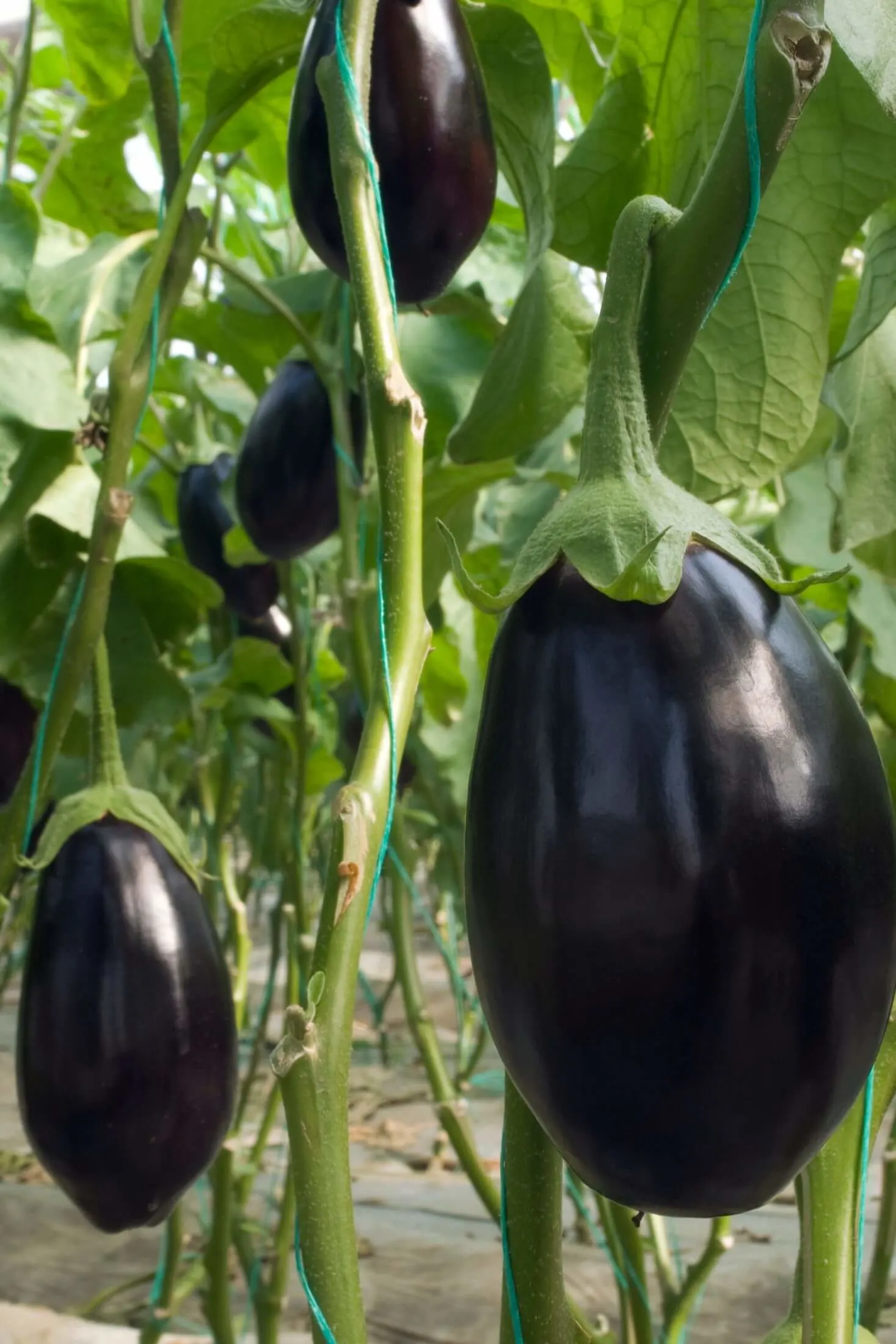
Best Eggplant Companion Plants
Borage:
Borage is kind of a magical pollinator attractant. It's a beautiful, vibrant plant with pretty blue flowers, and it blooms from early spring to late fall, giving pollinators beneficial insects the nectar and pollen they need throughout the growing season.
Borage may also help to deter tomato worms from your eggplant crop.
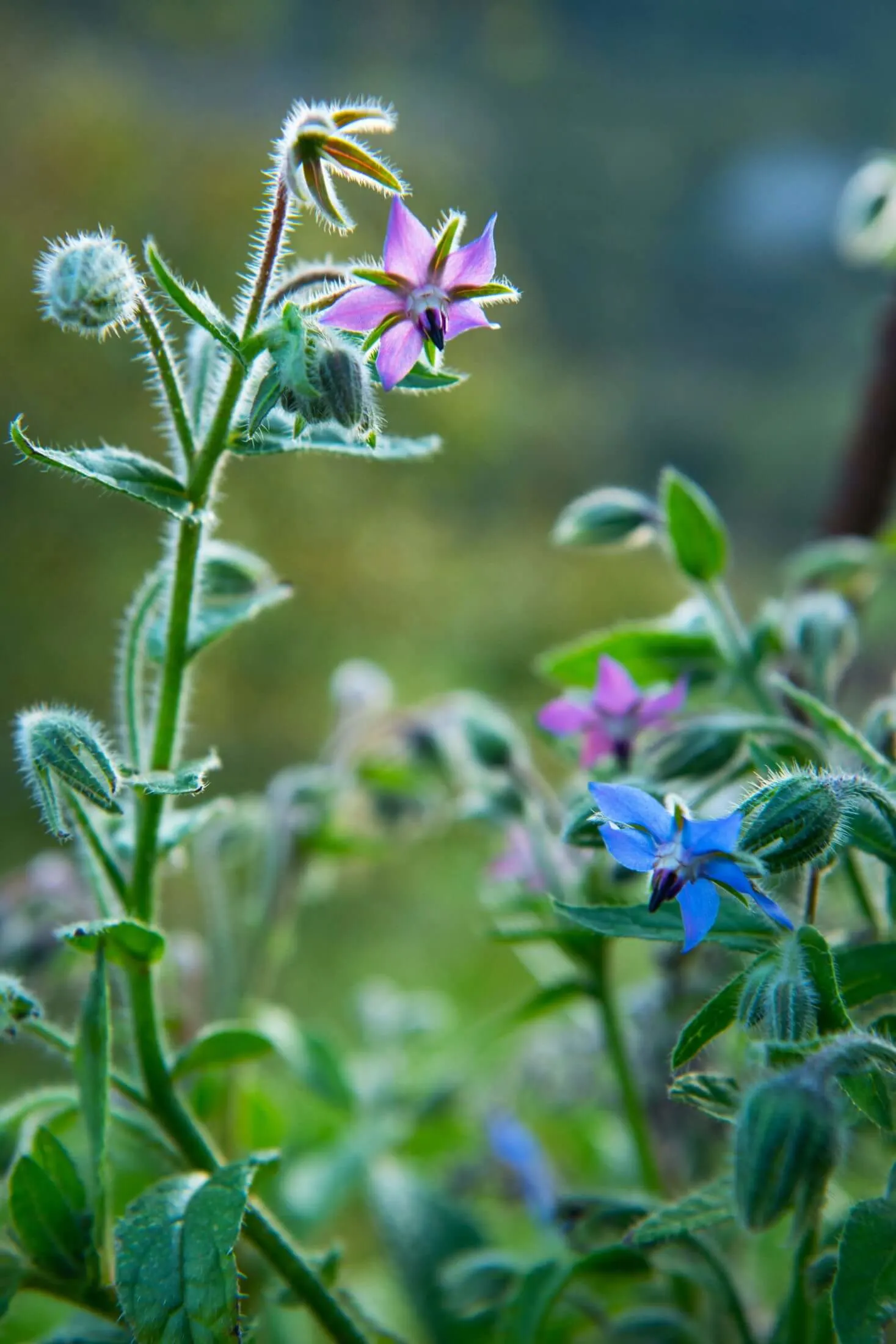
Marigolds:
Marigolds are great companions to tomatoes, so it stands to reason that they'd be great companions to eggplant! These small but vibrant flowers help the vegetable garden by attracting pollinators and repelling pests, like flea beetles, as well as repelling root nematodes from your eggplant.
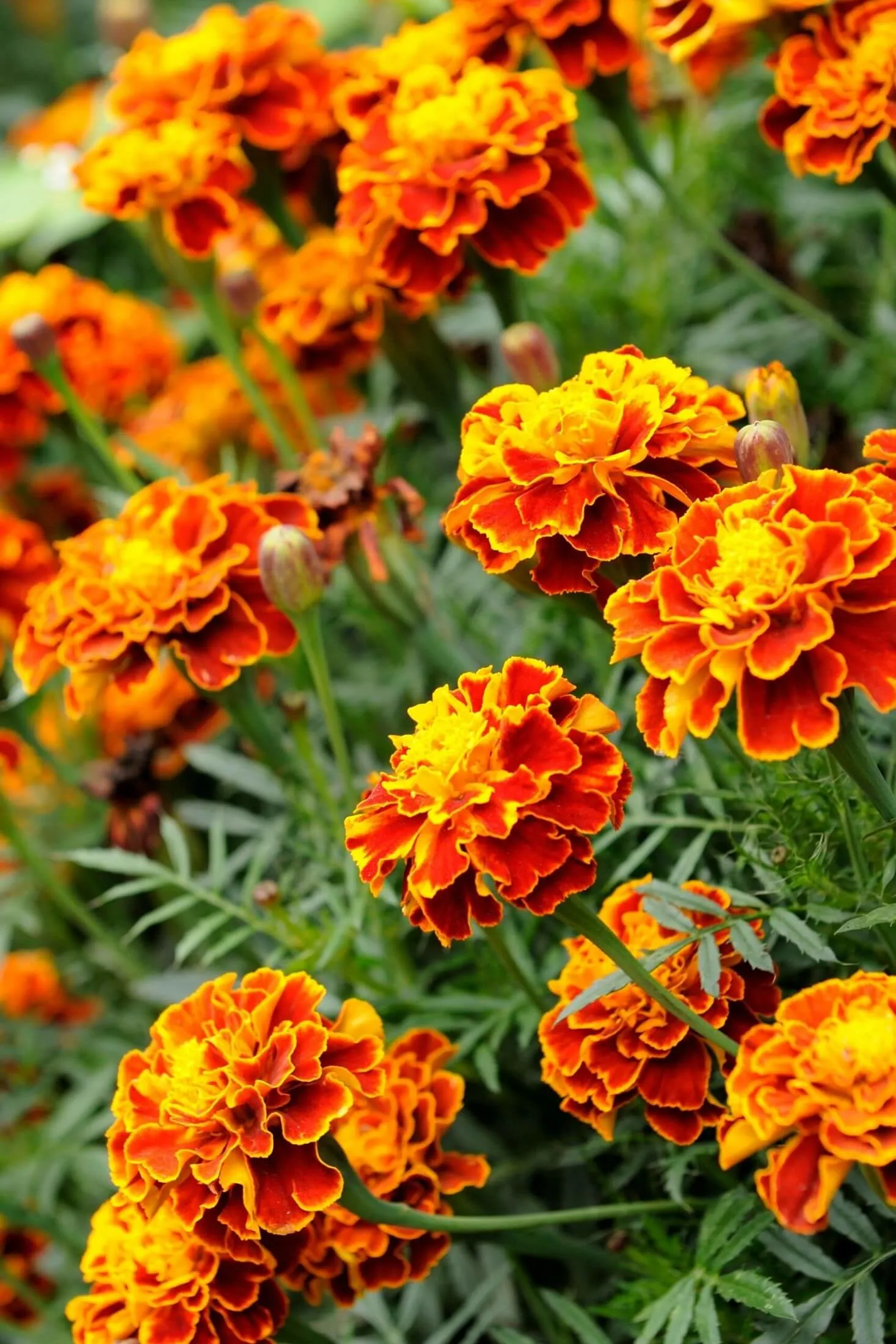
Nasturtium:
This is a homestead favorite. We planted nasturtiums under several fruit trees last year and will do the same this year! They provide a wonderful living mulch, reducing soil moisture evaporation, pest pressure, and soil temperature.
These beautiful and edible plants also act as a trap crop, luring aphids away from the eggplant.
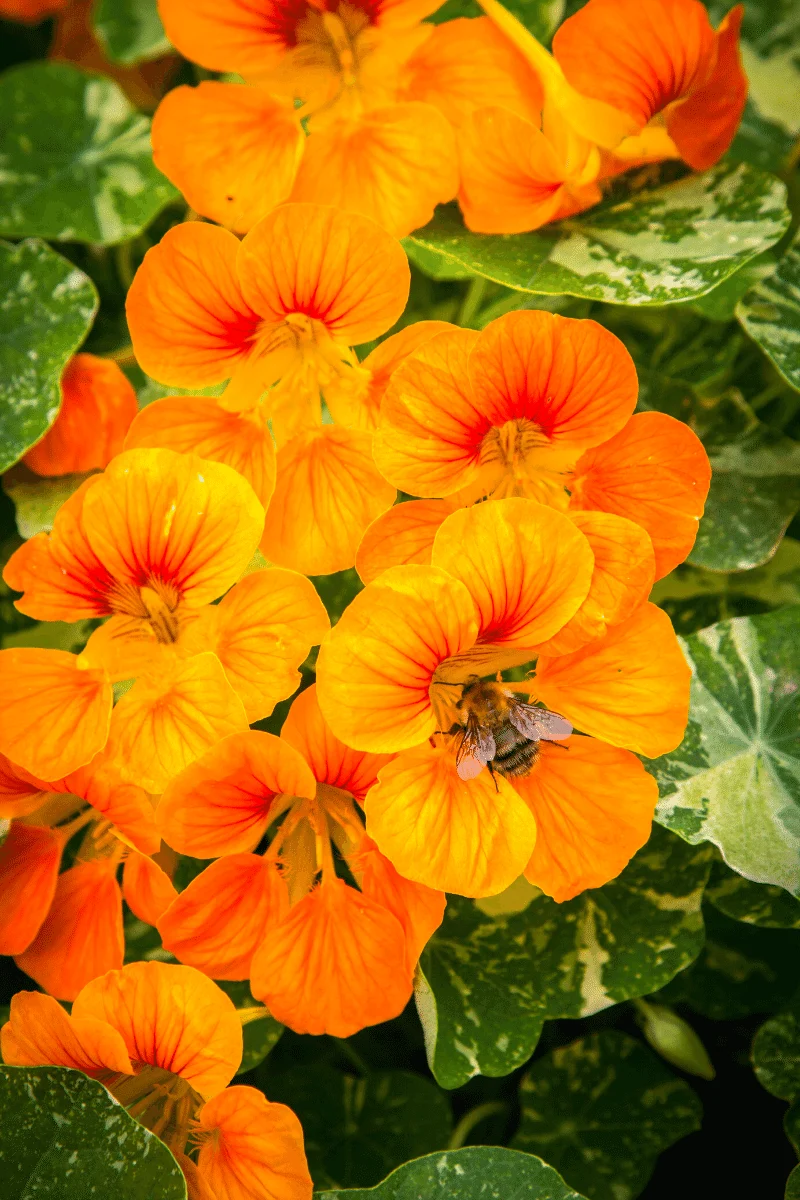
Nightshades:
As a member of the nightshade family, eggplant can be safely planted among its kin, like tomatoes, peppers, and potatoes as they generally like similar growing conditions.
But, there's always a caveat, planting multiple species of the same family can increase pest issues as pests generally jump from family member to family member.
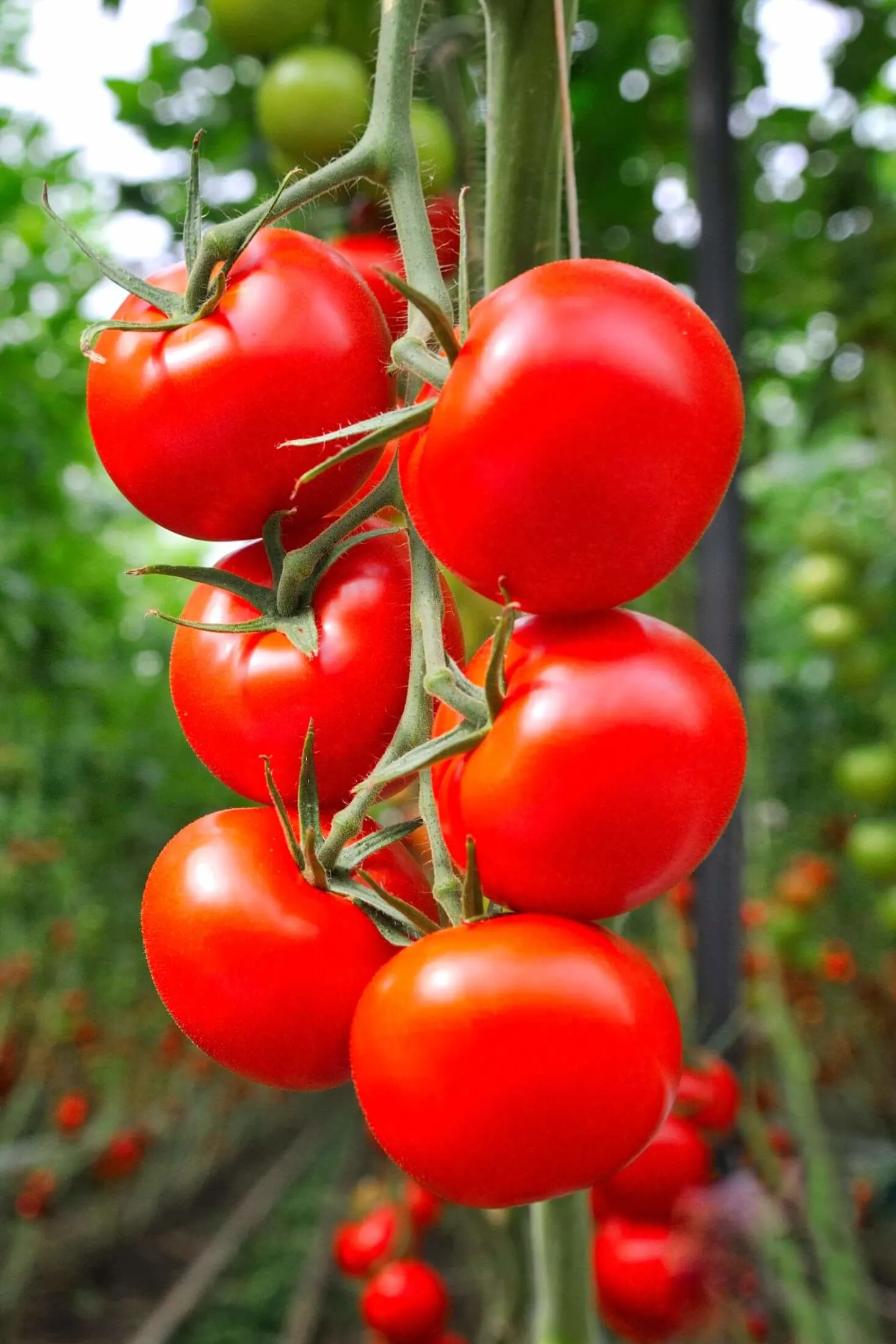
Oregano:
Oregano's fragrant and beneficial aroma helps to repel aphids and spider mites from the garden. Its small but vibrant flowers attract pollinators like honeybees to help ensure quality fruit set for your crops and tons of beneficial insects like ladybugs to feast on aphids.
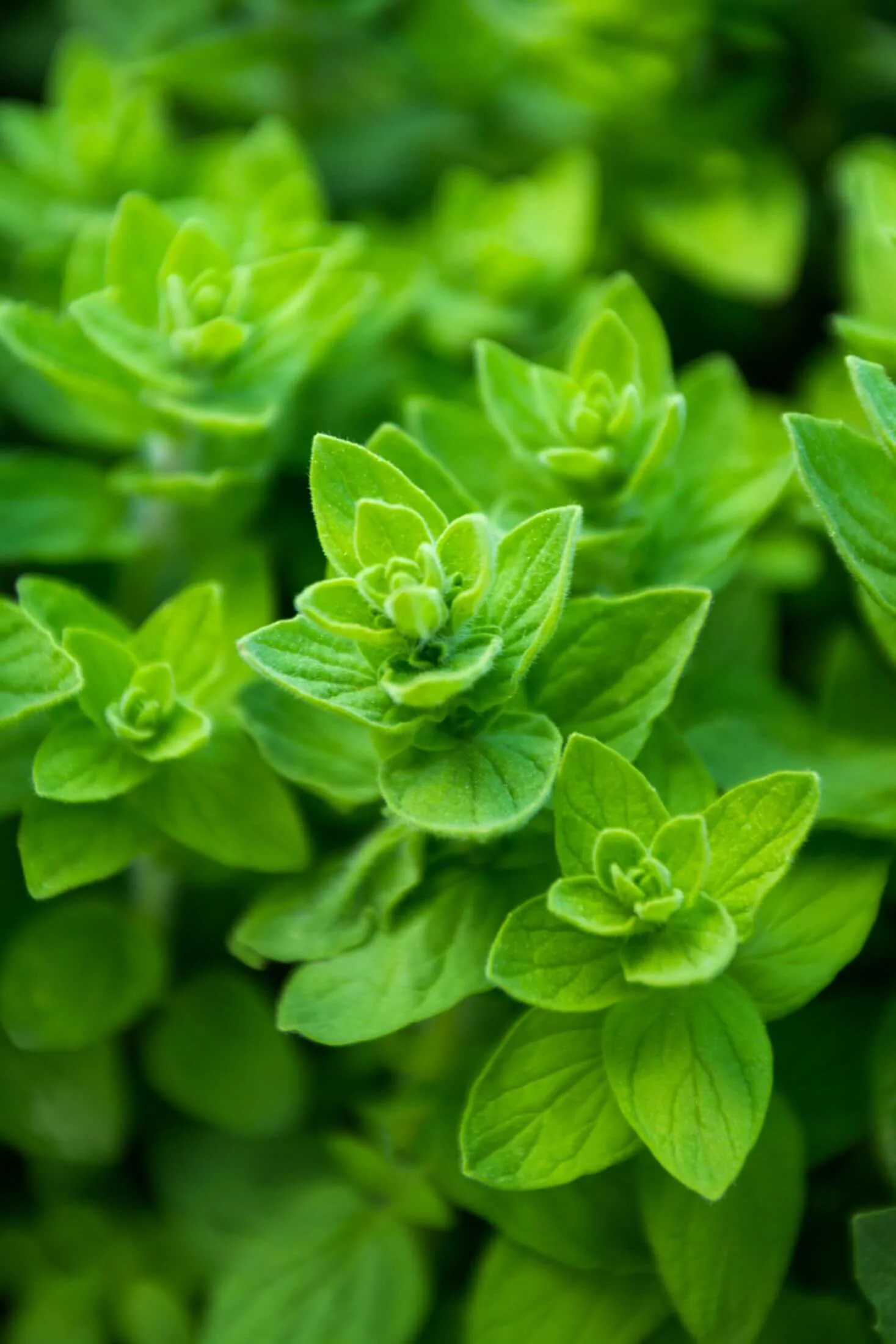
Pole Beans:
The very same beans from "Three Sisters" fame can help to improve the quality of your eggplants by adding nitrogen to the soil. Growing eggplants require a lot of nitrogen for proper growth, so planting them near nitrogen fixers like pole beans, green beans, or even peas, can make a difference in your harvest.
Beans can be effective in repelling potato beetles that eat the leaves of your eggplants.
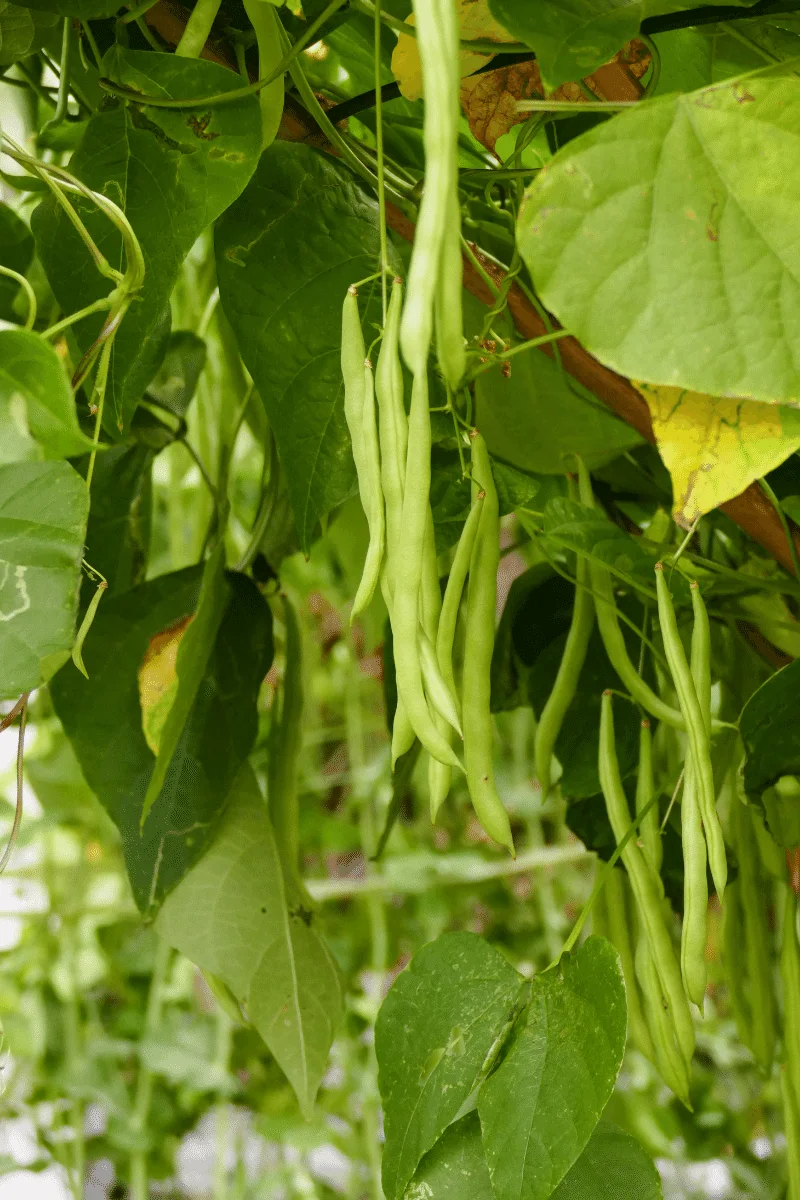
Spinach:
Spinach is a good companion for eggplant because it creates a living mulch, helping to maintain soil moisture, equalize soil temperatures, and reduce pest pressure. Eggplant, in return, offers much-appreciated shade to the cool-season spinach helping to prevent bolting.
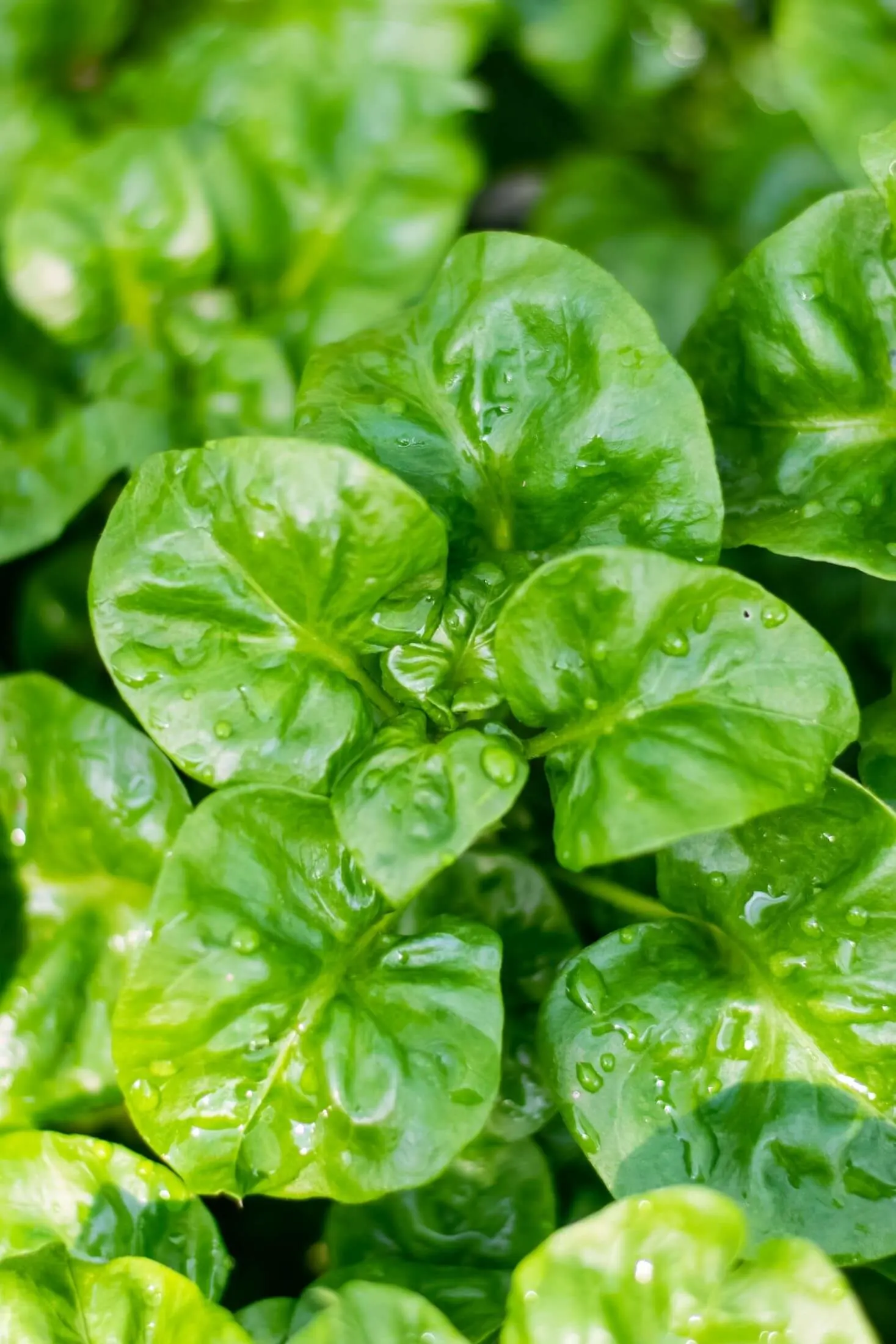
Worst Eggplant Companion Plants
Brassicas:
Pairing two heavy nutrient and water feeders together is almost always a recipe for disaster. Combining brussels sprouts, cauliflower, cabbage, broccoli, kale, or other brassicas will likely reduce the yield and vigor for both plants.
Space these plants out for the best results.
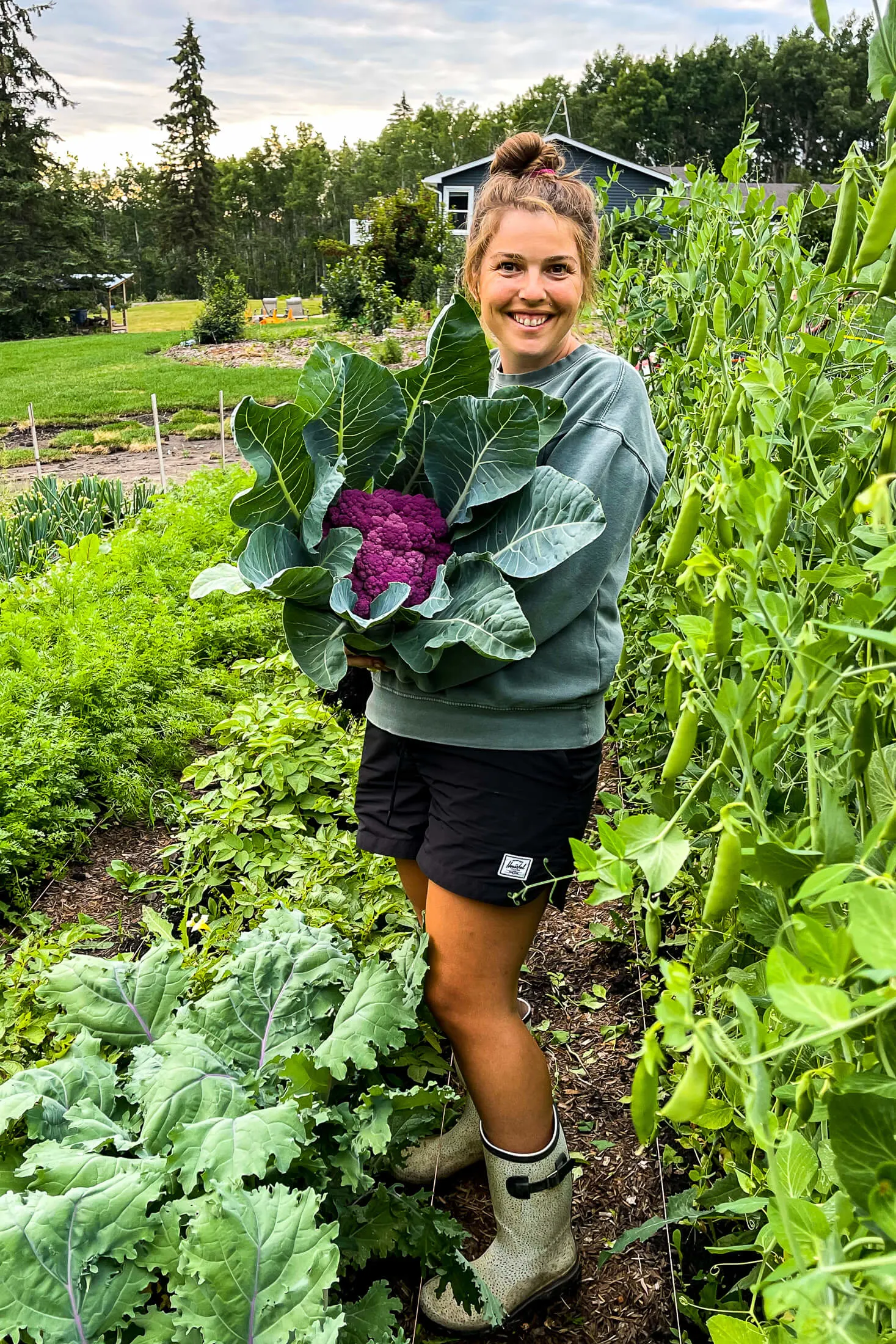
Corn:
Both eggplant and corn are heavy feeders of both nutrients and water resources, which can cause them to compete for both. Corn and tomatoes are also susceptible to some of the same garden pests. One of them is the spider mites.
Combining two plants with the same pests creates an all-you-can-eat buffet for the baddies we don't want in the garden. It's best to keep these plants separate.
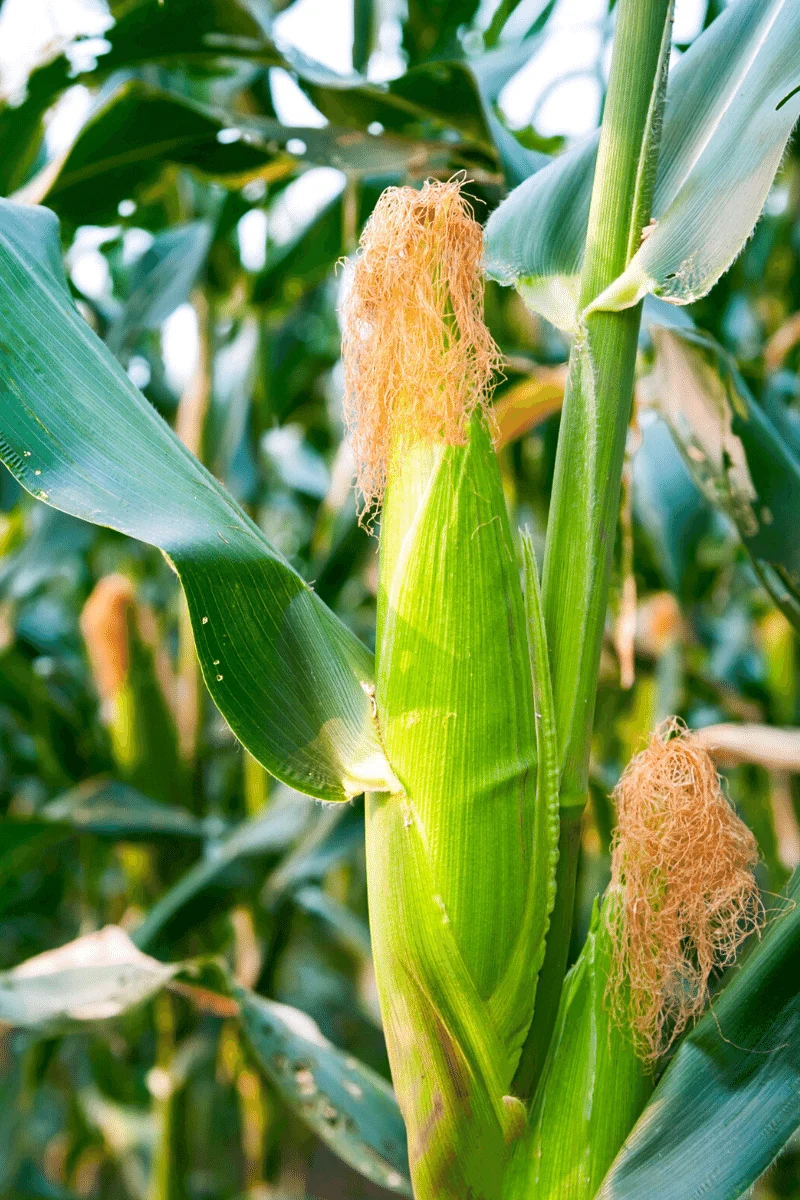
Fennel:
Fennel is your eggplant's worst enemy! Ok, to be fair, fennel is everyone's worst enemy. Don't plant fennel anywhere near your food garden.
Fennel is fickle. It's a terrible companion plant for all other food crops (except dill) because it releases negative allopathic chemicals into the soil that inhibit other plants from growing well, so avoid planting eggplant in fennel's vaccinate.
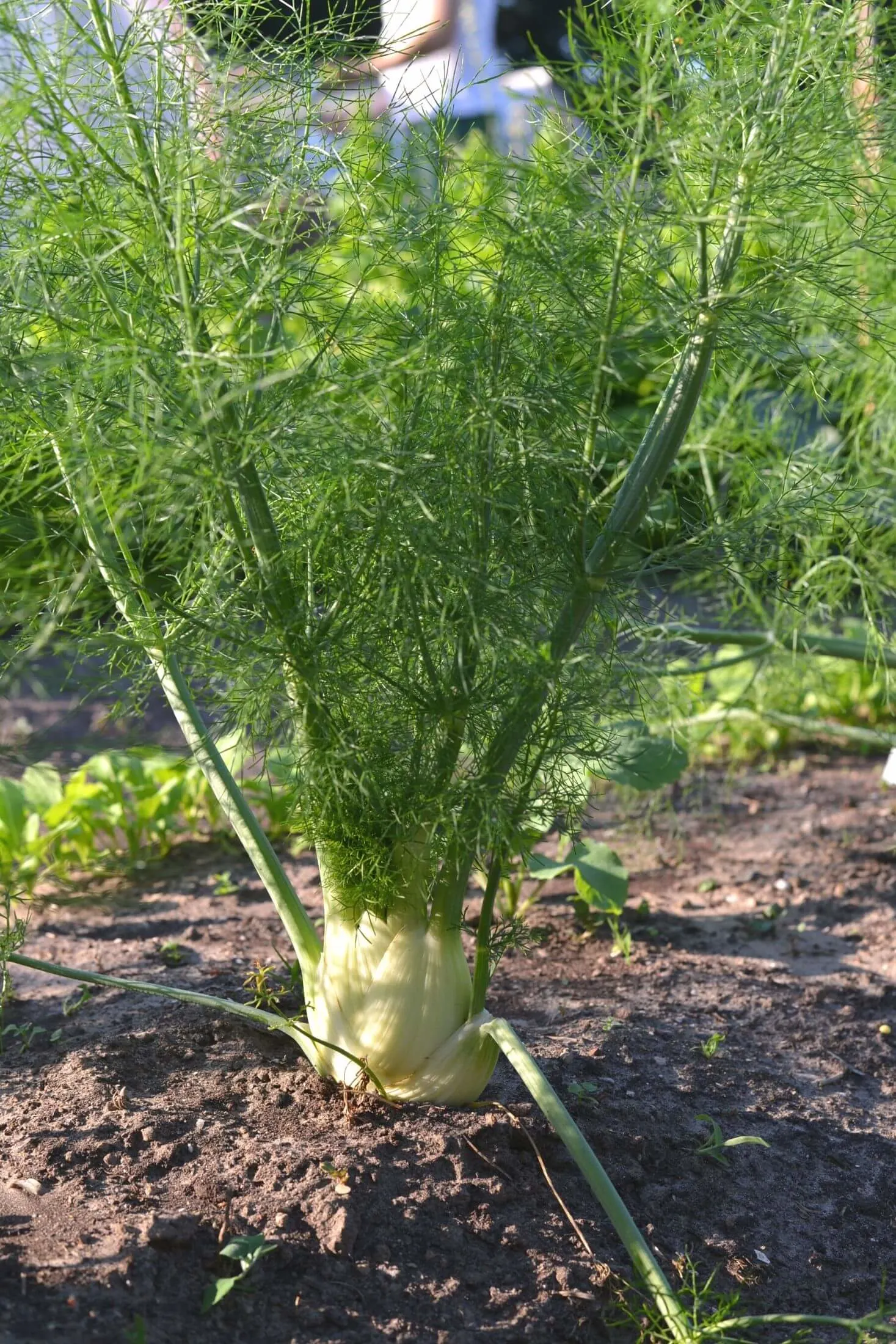
More Companion Planting Guides!
Thoughts From The Homestead Garden
Companion planting is a great way to improve plant health and maximize your vegetable garden. Eggplants can benefit from being planted near certain plants that help repel pests, add nitrogen to the soil, or provide shade. Nasturtiums, nightshades, oregano, pole beans, and spinach plants are great companions to eggplants. On the other hand, it is best to avoid planting eggplants near brassicas, corn, and fennel as these can compete for nutrients and water or attract pests. With proper planning and companion planting, you can create a thriving garden with delicious bounties of fresh vegetables!
Pin This Eggplant Companion Planting Guide!
